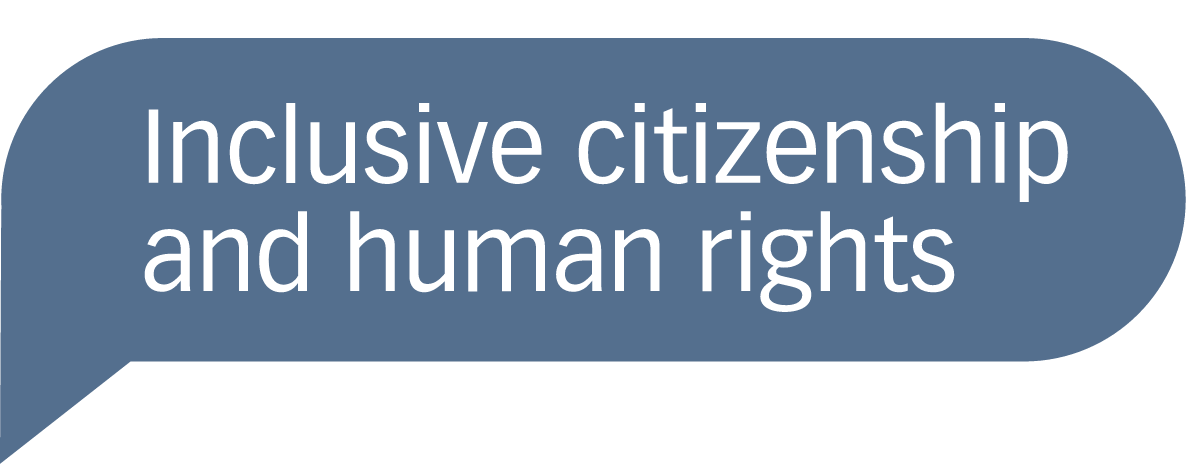
Equal human dignity means equal human rights
All human beings are born with the same inherent dignity. Therefore they also have the same right to integrity, freedom and welfare, regardless of their religion, ethnicity or other status. This is the foundation of all human rights. Human rights as defined by the UN Universal Declaration of Human Rights of 1948 apply to all human beings in all countries, regardless of citizenship.
Who are “minorities”?
Not all persons in a minority situation want the term “minority” to be applied to them or to the religious or ethnic group(s) with which they are affiliated. Some perceive the term to assign a status of being less equal as citizens. This is why we choose to refer to inclusive citizenship and human rights when addressing these concerns.
However, when the term “minority” is used by scholars and civil society actors in this learning resource, it refers to the international human rights framework, under which it is intended to ensure equal recognition of the basic rights of all individuals, including their rights to citizenship and non-discrimination.
Minority rights are human rights, says the UN Special Rapporteur on minority issues
“Minority rights are human rights”
International law
Democratic systems do not always ensure the rights and inclusion of all inhabitants regardless of religious and ethnic affiliation, and sometimes majority rule may even pose a threat to them. This is the reason why international human rights treaties emphasise the equal rights of “persons belonging to religious, ethnic and linguistic minorities”, such as in the UN Covenant on Civil and Political Rights, Article 27.
This recognition of the particular duty of states to ensure the rights of persons belonging to such numerical minorities is based upon the human rights they are entitled to enjoy like all other human beings, including the right to citizenship.
“In those States in which ethnic, religious or linguistic minorities exist, persons belonging to such minorities shall not be denied the right, in community with the other members of their group, to enjoy their own culture, to profess and practice their own religion, or to use their own language.” (International Covenant on Civil and Political Rights, Article 27)
Other human rights of special relevance are:
- The non-discrimination clause – the right not to be discriminated against because of factors that are normally constitute of identity, like race, ethnicity, religion, sex/gender etc.
- Individual rights from which all people, including minorities, should benefit but which sometimes can only be exercised meaningfully in a group, such as the freedom to practice one’s religion or belief in community with others
- Indigenous peoples’ rights
A contextual concept
The term “minority” is a contextual concept. Persons with a certain religious or ethnic identity may be in a numerical minority position in one country or region and in a majority position in another. Indeed, in some countries the numerical minority is in a dominant political position. In most situations, however, being the numerical minority makes individuals more vulnerable to discrimination, exclusion and – in some countries and periods – to persecution based on their religious or ethnic identity or group affiliation. This is why international law places such strong emphasis on the human rights of persons in such situations.

Muslim, Christian and Yazidi youth gather in Lalesh as a part of inter-faith visits
Yazidis and Christians both have a long history in Iraq, and are both numerical minorities at the national or regional level, though they may be the majority in certain villages. The Kurds are a minority at the national level but the majority in the Kurdish region, where Sunni Muslims constitute the majority, while the Shia Arabs constitute the majority at national level.
Related resources
External resources
Here are a few selected recent reports and films addressing issues related to human rights of religious and ethnic minorities



